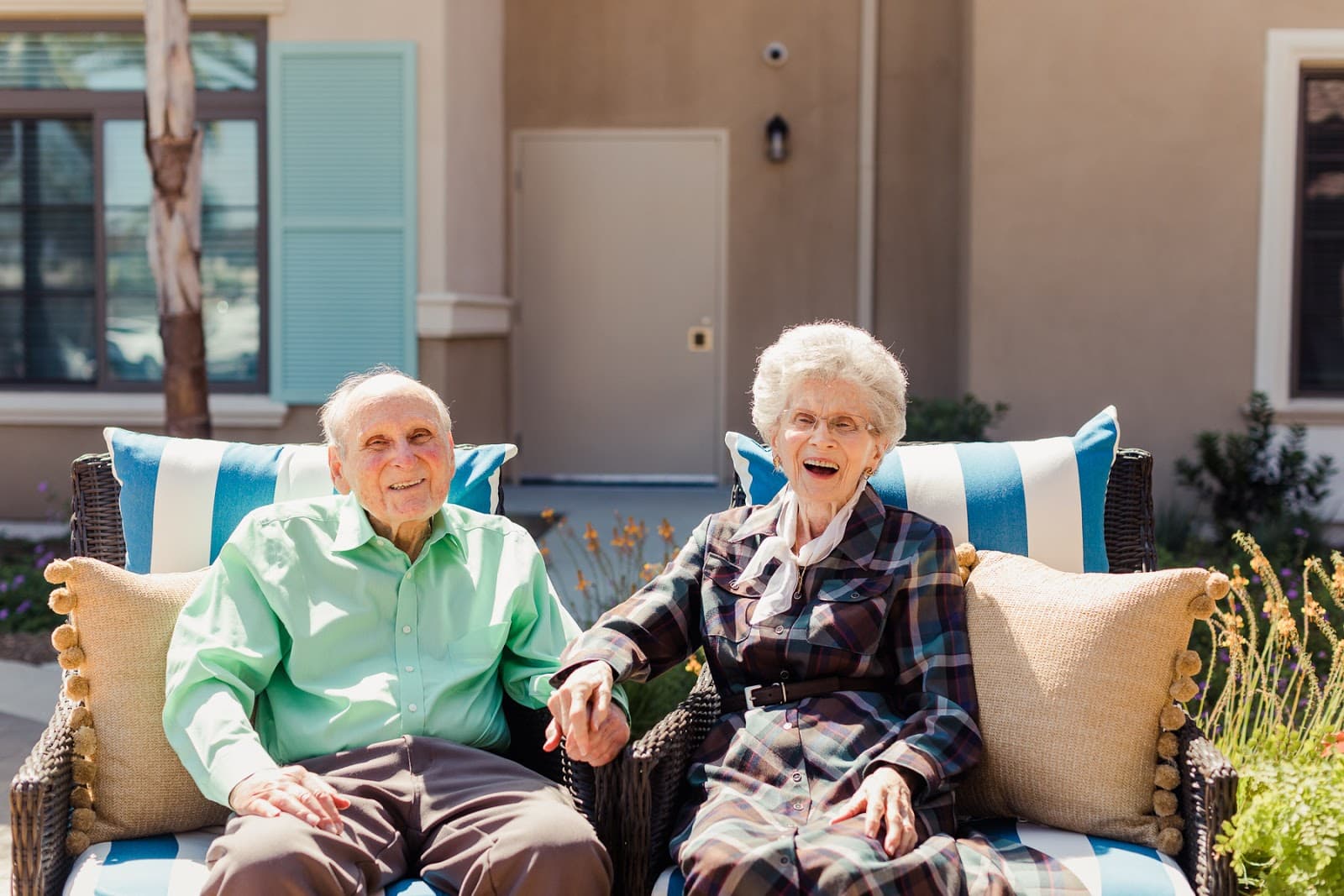While there are no proven methods to prevent Alzheimer’s disease and other types of dementia, there is strong evidence that the lifestyle choices associated with good health in general also may reduce cognitive decline. With this in mind, Carol Hahn’s virtual caregiver series focuses on brain health and the link to Alzheimer’s, as well as staying active in order to live your best, healthiest lifestyle.
Read on to learn about daily brain health exercises and practices you and your loved ones can incorporate into your lives at any stage. This includes aging seniors looking to adopt healthier habits, as well as those in the early or late stages of Alzheimer’s.
Incorporate healthy habits into daily life
We need more research to provide us with specific steps that prevent Alzheimer’s and dementia. Until then, the goal is to promote good overall health practices, including eating a balanced diet and regularly moving our bodies.
Fortunately, current research points to the idea that improving overall health may help prevent and treat Alzheimer’s or dementia.
Consider incorporating the following steps to improve your overall health and wellness:
- Keep blood pressure, cholesterol, and diabetes in check. Make regular doctor’s appointments, take prescribed medications, and follow the guidance of your health care professionals — including quitting smoking.
- Stay active and social. With the guidance of your doctor, perform the level of exercise that is right for your body. This can mean regular walks, exercise groups, dance classes, bike riding, or gardening — with or without friends.
- Check on your mental health. Take moments to check in on how you are feeling. Focus on meditation or other spiritual practices to help boost your mood. Talk with friends, family, or professional counselors if you’re feeling depressed or anxious.
- Eat nourishing foods. Diets focused on plant-based foods that limit red meat, saturated fat, and sugar can make a huge difference in your health and reduce the risk of developing Alzheimer’s. These diets are rich in whole grains, green leafy vegetables, nuts, and fish, and low in cheese, butter, fried foods, and sweets.
- Mentally challenge yourself. In short, keep learning and playing. Learn a new language or instrument, pick up a new hobby, play strategy games, or read high-level books. This will keep your brain sharp.
Brain health exercises for those with Alzheimer’s
Even for those with Alzheimer’s or dementia, research shows that keeping the brain active and engaged could mean they spend less time in a state of mental decline. The types of exercises vary depending on a person’s unique needs, but the idea is to keep the mind active and challenged.
Consider these types of activities for those with Alzheimer’s or dementia:
- Board games
- Card games
- Crossword puzzles
- Number puzzles
- Memory video games or online games
- Virtual classes
Learning new activities may strengthen nerve cell connections and possibly even grow new nerve cells. Even for those in the late stages of Alzheimer’s or dementia, you can support loved ones by providing sensory books or toys, music, movies, reading to them, bird watching, or watching sports or other activities.
How to detect Alzheimer’s and dementia for early intervention
Early symptoms of Alzheimer’s and dementia will vary depending on the person, but generally will include the following signs that progress over time:
- Memory loss
- Repeating questions
- Impaired reasoning or judgment that leads to poor decisions
- Losing initiative and spontaneity
- Daily tasks take longer to complete
- Difficulty with money and paying bills
- Misplacing items
- Mood and personality changes
- Anxiety or aggression
- Getting lost or wandering
It can be difficult to diagnose Alzheimer’s in the early stages, because the signs may be confused with general signs of aging or with other illnesses. The symptoms also are often underreported.
To diagnose Alzheimer’s or dementia, doctors will thoroughly evaluate the overall health of the person, including illnesses, medications, and recent changes. They will perform several problem-solving and memory tests, standard blood or urine tests, and brain scans.
No matter what stage of life your loved ones are in, implementing healthy habits can begin at any time to help reduce or prevent further cognitive decline.
Expert and loving memory care at Redondo Beach
Alzheimer’s and dementia affect each individual differently. When your loved one requires memory care, they will need a customized experience that caters to their unique needs and brain health for Alzheimer’s, dementia, or normal aging. The Kensington Redondo Beach is equipped to provide this expert care for your loved one at any stage.
Our Promise is to love and care for your family as we do our own, in all aspects of care. In addition to specialized memory care, we also offer exceptional assisted living, with services and programs that are thoughtfully designed, clinically comprehensive, and highly personalized.
With a robust life enrichment program, on-site therapy, and professional care 24-7, you can trust your loved one is receiving the most advanced care that will keep them engaged and full of purpose.
We also offer caregiver resources and events, such as our virtual caregiver series with Carol, to provide support to our community. Join Carol to learn easy exercises and daily practices to keep you living your best, healthiest lifestyle.
Reach out to us today to learn more about our community, the resources we provide, and our dedication to providing the highest levels of care to your loved ones.
Further Reading:
To learn more about our exceptional assisted living and memory care at The Kensington Redondo Beach, click below or give us a call today for any questions. We promise to love and care for your family, as we do our own.



